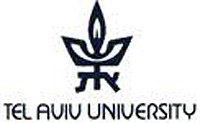 TEL AVIV (Press Release) — Researchers at Tel Aviv University (TAU) have succeeded in cultivating and characterizing tomato varieties with higher water-use efficiency without compromising yield. The researchers, employing CRISPR genetic editing technology, were able to grow tomatoes that consume less water while preserving yield, quality, and taste.
TEL AVIV (Press Release) — Researchers at Tel Aviv University (TAU) have succeeded in cultivating and characterizing tomato varieties with higher water-use efficiency without compromising yield. The researchers, employing CRISPR genetic editing technology, were able to grow tomatoes that consume less water while preserving yield, quality, and taste.
The research was conducted in the laboratories of Professor Shaul Yalovsky and Dr. Nir Sade and was led by a team of researchers from the School of Plant Sciences and Food Security at TAU’s George S. Wise Faculty of Life Sciences. The team included postdoctoral fellow Dr. Mallikarjuna Rao Puli and doctoral student Purity Muchoki. Additional students and postdoctoral fellows from TAU’s School of Plant Sciences and Food Security, along with researchers from Ben Gurion University and the University of Oregon, also contributed to the research. The study’s findings were published on January 8, 2024, in the journal PNAS.
Because of global warming and the diminishing of freshwater resources, there is a growing demand for agricultural crops that consume less water without compromising yield. Naturally, at the same time, because agricultural crops rely on water to grow and develop, it is particularly challenging to identify suitable plant varieties.
In the present study, the researchers induced a modification in the tomato through genetic editing using the CRISPR method, targeting a gene known as ROP9. The ROP proteins function as switches, toggling between an active or inactive state.
“We discovered that eliminating ROP9 by the CRISPR technology cause a partial closure of the stomata,” special openings in the surface of leaves that open and close, serving as a mechanism through which plants regulate their water status, Professor Yalovsky says. “This effect is particularly pronounced during midday, when the rate of water loss from the plants in the transpiration process is at its highest. Conversely, in the morning and afternoon, when the transpiration rate is lower, there was no significant difference in the rate of water loss between the control plants and ROP9-modified plants.
“Because the stomata remained open in the morning and afternoon, the plants were able to uptake enough carbon dioxide, preventing any decline in sugar production by photosynthesis even during the afternoon hours, when the stomata were more closed in the ROP9-modified plants.”
To assess the impact of the impaired ROP9 on the crop, the researchers conducted an extensive field experiment involving hundreds of plants. The results revealed that although the ROP9-modified plants lose less water during the transpiration process, there is no adverse effect on photosynthesis, crop quantity, or quality (defined as the amount of sugar in the fruits). Furthermore, the study identified a new and unexpected mechanism for regulating the opening and closing of the stomata, related to the level of oxidizing substances, known as reactive oxygen species, in the stomata. This discovery holds significant implications for basic scientific knowledge as well.
“There is great similarity between the ROP9 in tomatoes and ROP proteins found in other crop plants such as pepper, eggplant, and wheat,” Dr. Sade concludes. “The discoveries detailed in our article could form the basis for the development of additional crop plants with enhanced water use efficiency, and for a deeper understanding of the mechanisms behind stomatal opening and closing.”
*
Preceding provided by Tel Aviv University
"tasty" - Google News
January 30, 2024 at 11:47PM
https://ift.tt/f3EDM4P
Tel Aviv University Grows Tasty Tomatoes Using Less Water - San Diego Jewish World
"tasty" - Google News
https://ift.tt/mWKR7rL
https://ift.tt/PQf493j
Bagikan Berita Ini














0 Response to "Tel Aviv University Grows Tasty Tomatoes Using Less Water - San Diego Jewish World"
Post a Comment